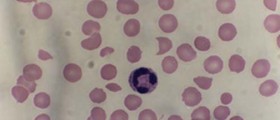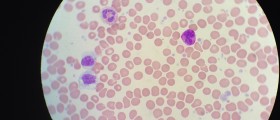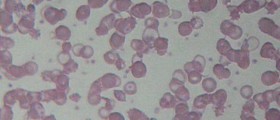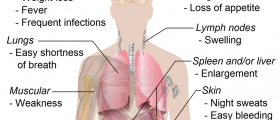
The spleen is a very important organ in the human body, which is situated below the rib cage or diaphragm on the left side. Its primary role is to be a filter for the pathogens from the blood. These pathogens are tiny organisms such as virus, bacteria and parasites, as well as yeast, fungi and molds that are in our body. Furthermore, the spleen also removes the old and dead cells from the blood, and supplies the required healthy blood cells. When the spleen is health, the size of it is as similar to the size of a fist, but when it is swollen it becomes larger and can be felt under touch. Splenomegaly is the medical term for the swollen spleen.
Causes of swollen spleen
There are various causes of this condition. For example, swollen spleen may be induced by infections caused by virus and bacteria, as well as by parasites. Enlarged spleen occurs also because of certain liver diseases, such as cirrhosis. Furthermore, since the spleen is a part of the lymphatic system of the body, every problem of lymphatic system may cause swollen spleen; for instance, lymphoma, a kind of cancer that affects lymph tissues, may be one of the causes. It is also proven that potential causes for this condition may be leukemia, inflammatory disease, blood disease and a trauma or injury to the spleen.
Symptoms of swollen spleen
Swollen spleen mat be asymptomatic and have hardly any symptom, but on the other hand, when the warning signs appear, they include pain, sense of fullness and excessive bleeding. These symptoms are the most common. The pain of the enlarged spleen is first experienced in the upper abdomen and then it spreads to the left shoulder. When this pain becomes severe, one will probably experience breathing with difficulty. Those who suffer from swollen spleen have the sense of fullness, because the enlarged spleen makes the pressure on the stomach. The consequence is that the person losses the body weight.
Since the spleen is storage of blood, when it is swollen, the excess amounts of blood cells and blood platelets occur. Thus, the imbalance between red blood cells and white blood cells is created. Furthermore, blood platelets are responsible for the blood clotting. Since they are in spleen in great amounts, there are small amounts of them in the bloodstream. Therefore, when one suffers even small injury, he/she has excessive wound bleeding. Those who suffer from the enlarged spleen may also experience anemia, fatigue and tiredness because of the deficiency of red blood cells and insufficient oxygen.

















Your thoughts on this
Loading...